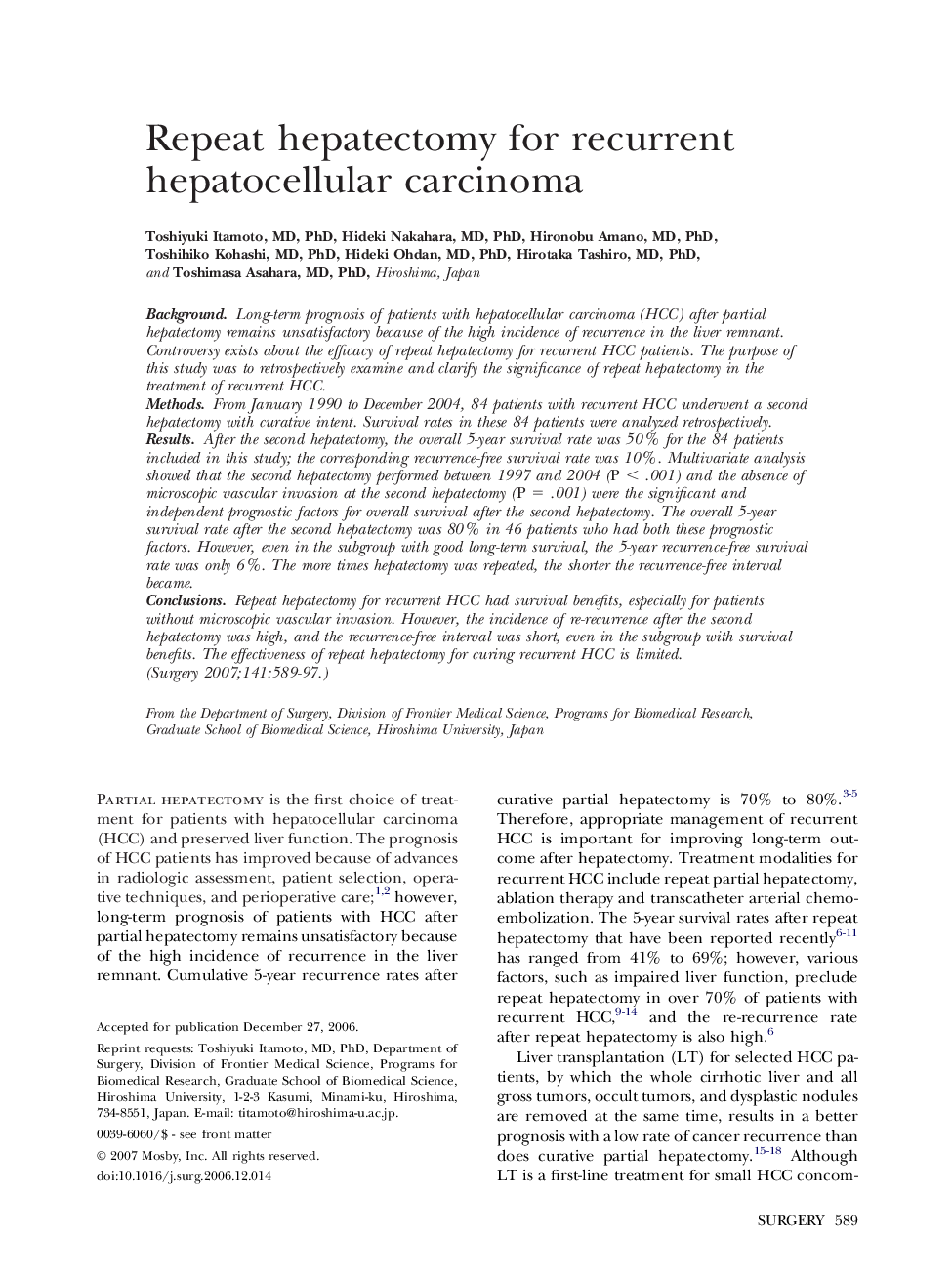| Article ID | Journal | Published Year | Pages | File Type |
|---|---|---|---|---|
| 4309703 | Surgery | 2007 | 9 Pages |
BackgroundLong-term prognosis of patients with hepatocellular carcinoma (HCC) after partial hepatectomy remains unsatisfactory because of the high incidence of recurrence in the liver remnant. Controversy exists about the efficacy of repeat hepatectomy for recurrent HCC patients. The purpose of this study was to retrospectively examine and clarify the significance of repeat hepatectomy in the treatment of recurrent HCC.MethodsFrom January 1990 to December 2004, 84 patients with recurrent HCC underwent a second hepatectomy with curative intent. Survival rates in these 84 patients were analyzed retrospectively.ResultsAfter the second hepatectomy, the overall 5-year survival rate was 50% for the 84 patients included in this study; the corresponding recurrence-free survival rate was 10%. Multivariate analysis showed that the second hepatectomy performed between 1997 and 2004 (P < .001) and the absence of microscopic vascular invasion at the second hepatectomy (P = .001) were the significant and independent prognostic factors for overall survival after the second hepatectomy. The overall 5-year survival rate after the second hepatectomy was 80% in 46 patients who had both these prognostic factors. However, even in the subgroup with good long-term survival, the 5-year recurrence-free survival rate was only 6%. The more times hepatectomy was repeated, the shorter the recurrence-free interval became.ConclusionsRepeat hepatectomy for recurrent HCC had survival benefits, especially for patients without microscopic vascular invasion. However, the incidence of re-recurrence after the second hepatectomy was high, and the recurrence-free interval was short, even in the subgroup with survival benefits. The effectiveness of repeat hepatectomy for curing recurrent HCC is limited.
